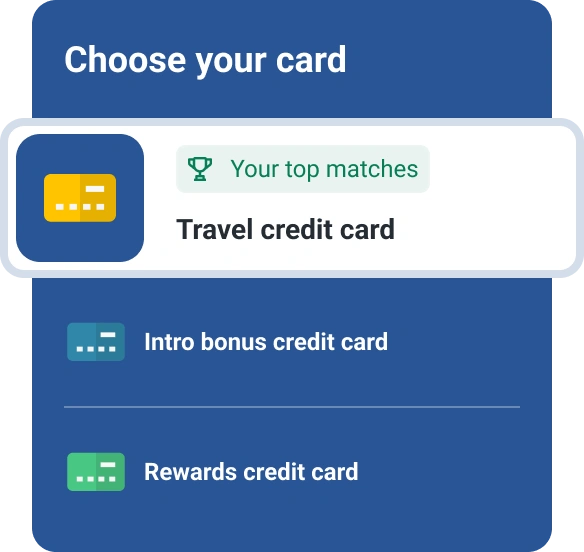Buy Now, Pay Later vs. Credit Cards: Which Payment Method Is Best?
Quick Answer
Credit cards offer rewards and protections that you won’t get with a buy now, pay later plan, but BNPL plans don’t require a credit check and may charge less interest for large purchases. Which is best will depend on the specific situation and purchase.

Buy now, pay later (BNPL) plans and credit cards allow you to finance new purchases and potentially pay over time without paying any additional interest and fees. Both can be good payment options, but what's best for you will depend on your financial situation and the terms you're offered.
How Do Buy Now, Pay Later Plans Work?
BNPL plans let you pay off a purchase with multiple equal payments, essentially turning a single purchase into a short-term installment loan.
For example, you may have an option to "pay-in-four," which usually entails paying a quarter of the purchase amount when you check out and then an additional quarter every two weeks for the next six weeks. These plans often don't charge you any interest or fees.
Some BNPL providers also let you choose alternative payment plans, such as a monthly payment over a longer period. These plans can make larger purchases more manageable and they don't necessarily require a down payment. However, you often have to pay interest on the longer-term plans.
If you want to use a BNPL plan, you may be able to choose the BNPL provider as your payment option when you're checking out at certain stores online or in person. There generally isn't a hard credit check, meaning applying won't impact your credit, but your eligibility and the plan options can depend on your finances, history with the provider and the merchant's policies.
BNPL providers may also let you create an account and pay with their app, a digital wallet or a virtual debit card. With these options, you may be able to use a BNPL plan on almost any purchase that accepts cards. However, even if you can have multiple BNPL plans, your account could have a credit limit that determines how much you can spend overall.
Buy Now, Pay Later vs. Credit Cards
Credit cards also let you make a purchase and then pay off the balance over time. Generally, if you pay your statement balance in full each month, you won't pay any interest on your credit card purchases. However, if you carry a balance, your purchases start to accrue interest immediately.
Read the terms and conditions of both types of accounts before applying or using the payment method, especially because the specifics can depend on the BNPL provider or credit card issuer. However, there are some general pros and cons to keep in mind:
Pros of Buy Now, Pay Later
- Qualify without a credit check
- No fees or interest for certain plans
- Equal periodic payments with a set payoff date
Cons of Buy Now, Pay Later
- May only be available with certain purchases
- Longer BNPL plans may charge interest
- Late payment fees may still apply
Pros of Using a Credit Card
- Earn rewards and get cardholder benefits
- Covered by consumer protections
- No interest on purchases if you pay your statement balance in full each month
Cons of Using a Credit Card
- Can require a credit check and good credit to qualify for a new card
- High interest rates if you carry a balance
- May charge various fees
Should You Use BNPL or a Credit Card?
Deciding between a BNPL plan and credit card can depend on your financial situation and which specific options you're comparing.
For example, if you're carrying a credit card balance and the purchase would start to accrue interest right away, BNPL might help you save money. BNPL plans can also be a good option for large purchases that you'll have to pay off over time if the offer has a lower interest rate than you'd pay with your credit card.
However, your credit card could offer perks and benefits that you won't get with a BNPL plan. If you're booking travel with a credit card, you might earn rewards on your purchases and be automatically covered by various types of travel protections, including trip accident, cancellation, interruption and delay insurance. And, if you can pay off the purchase in full, you still won't pay interest.
Consider Credit Card Installment Plans
An in-between option could be to use a credit card that offers an installment plan. Using these installment plans, you can turn certain credit card purchases into installment plans with fixed monthly payments and payoff dates.
American Express, Chase and U.S. Bank are among the card issuers that offer installment plan programs on some of their cards. The specifics depend on the card issuer, but the purchase generally has to be for at least $75 or $100 before you can enroll it in an installment plan. For eligible purchases, you may be able to choose from three- to 48-month repayment plans depending on the card issuer and purchase amount.
There's also either a fixed monthly fee or interest for the plan. But you could keep the benefits of paying with a credit card, including rewards and purchase protections, and avoid some of the fee or interest charges by paying off the plan early. While you can have multiple installment plans on a card, most issuers cap the total number of active plans you can have at one time.
Good Credit Gives You Choices
If you have good credit, you can likely qualify for some of the best credit cards and low-rate personal loans (for large purchases). Then, you can choose whichever payment option is best for each of your purchases. Experian gives you a free credit score, insight into what's helping and hurting your score the most and personalized recommendations for what you can do to improve your credit.
Don’t apply blindly
Apply for credit cards confidently with personalized offers based on your credit profile. Get started with your FICO® Score for free.
See your offersAbout the author
Louis DeNicola is freelance personal finance and credit writer who works with Fortune 500 financial services firms, FinTech startups, and non-profits to teach people about money and credit. His clients include BlueVine, Discover, LendingTree, Money Management International, U.S News and Wirecutter.
Read more from Louis

